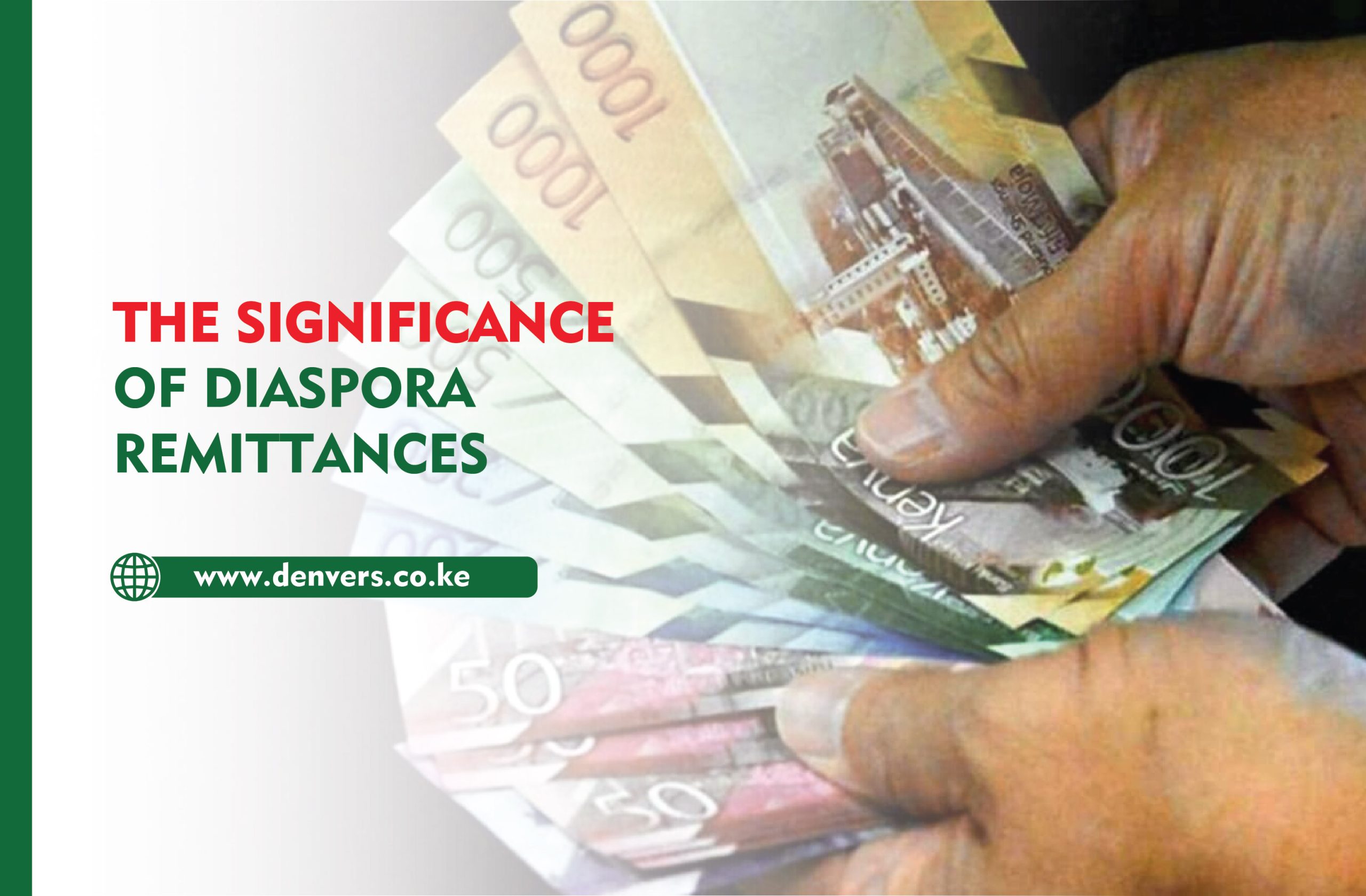Diaspora Remittances in Kenya: A Lifeline for the Economy
Diaspora remittances have become a vital source of income for Kenya, providing a lifeline to millions of families and contributing significantly to the country’s economic growth. This blog post will delve into the importance of diaspora remittances in Kenya, exploring their impact on various sectors and discussing the factors influencing their flow.
The Significance of Diaspora Remittances

- Economic Stimulus: Remittances inject much-needed foreign currency into the Kenyan economy, boosting consumer spending, investment, and overall economic activity.
- Poverty Reduction: Diaspora remittances help alleviate poverty by providing families with the means to meet their basic needs, such as food, education, and healthcare.
- Infrastructure Development: Governments often allocate a portion of remittance inflows to fund infrastructure projects, such as roads, schools, and hospitals.
- Financial Inclusion: Remittances can promote financial inclusion by encouraging recipients to open bank accounts and participate in formal financial systems.
Key Sectors Benefiting from Remittances
- Agriculture: Remittances support agricultural activities, enabling farmers to purchase inputs, invest in new technologies, and expand their businesses.
- Education: Many families rely on remittances to pay school fees and support their children’s education.
- Healthcare: Remittances help cover medical expenses, particularly for serious illnesses or emergencies.
- Housing: Diaspora remittances often contribute to the construction or improvement of homes, providing families with better living conditions.
- Small Businesses: Remittances can be used to start or expand small businesses, creating employment opportunities and promoting economic growth.
Factors Influencing Remittance Flows

- Economic Conditions: Economic downturns in the diaspora countries can lead to a decline in remittance inflows. Conversely, economic growth can stimulate remittances.
- Exchange Rates: Fluctuations in exchange rates can affect the value of remittances. A weaker domestic currency can make remittances more valuable, while a stronger currency can reduce their purchasing power.
- Remittance Costs: High fees associated with sending remittances can discourage individuals from sending money home. Efforts to reduce these costs can encourage increased remittances.
- Regulatory Environment: Government policies and regulations can impact the ease of sending and receiving remittances. A favorable regulatory environment can promote remittance flows.
- Technology: The development of digital technologies, such as mobile money and online platforms, has made it easier and more convenient to send and receive remittances.
Challenges and Opportunities Affecting Diaspora Remittances in Kenya

While diaspora remittances offer numerous benefits, there are also challenges that need to be addressed. These include:
- Remittance Costs: High fees can reduce the amount of money that reaches recipients.
- Informal Remittances: A significant portion of remittances are sent informally, which can make it difficult to track and regulate.
- Currency Fluctuations: Exchange rate volatility can create uncertainty for both senders and recipients.
To maximize the benefits of diaspora remittances, governments and financial institutions can work together to:
- Reduce Remittance Costs: Implement policies that promote competition among remittance providers and reduce fees.
- Promote Formal Remittances: Encourage individuals to use formal channels for sending and receiving remittances.
- Enhance Financial Literacy: Educate diaspora communities about the benefits of formal financial services and how to manage their finances effectively.
- Invest in Infrastructure: Utilize remittance inflows to fund infrastructure projects that improve the lives of citizens.
Diaspora remittances play a crucial role in the Kenyan economy, providing a lifeline to millions of families and contributing to development and growth. By addressing the challenges and seizing the opportunities, Kenya can continue to harness the power of diaspora remittances to build a more prosperous and inclusive future.
Do you have questions on Diaspora Remittances in Kenya or suggestions on the above and future topics? We’d love to hear from you! Reach out to our property experts at [email protected] or call us on 0701730267







